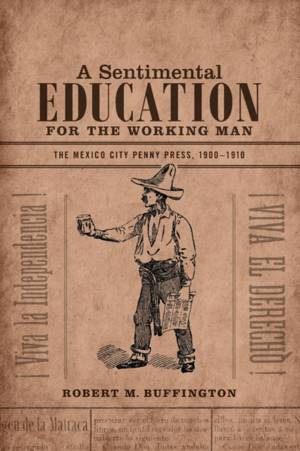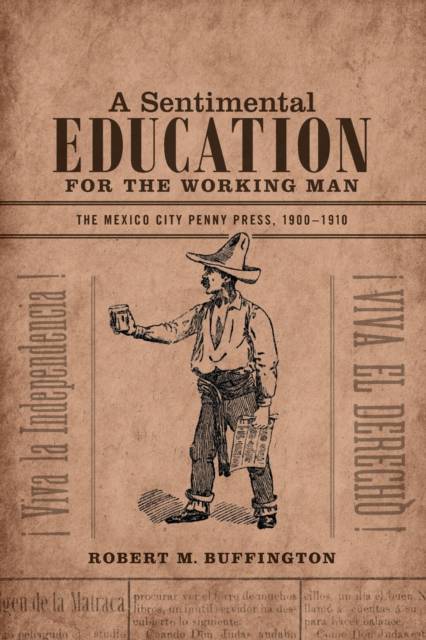
Door een staking bij bpost kan je online bestelling op dit moment iets langer onderweg zijn dan voorzien. Dringend iets nodig? Onze winkels ontvangen jou met open armen!
- Afhalen na 1 uur in een winkel met voorraad
- Gratis thuislevering in België vanaf € 30
- Ruim aanbod met 7 miljoen producten
Door een staking bij bpost kan je online bestelling op dit moment iets langer onderweg zijn dan voorzien. Dringend iets nodig? Onze winkels ontvangen jou met open armen!
- Afhalen na 1 uur in een winkel met voorraad
- Gratis thuislevering in België vanaf € 30
- Ruim aanbod met 7 miljoen producten
Zoeken
A Sentimental Education for the Working Man
The Mexico City Penny Press, 1900-1910
Robert M Buffington
Paperback | Engels
€ 56,45
+ 112 punten
Omschrijving
In A Sentimental Education for the Working Man Robert Buffington reconstructs the complex, shifting, and contradictory ideas about working-class masculinity in early twentieth-century Mexico City. He argues that from 1900 to 1910, the capital's satirical penny press provided working-class readers with alternative masculine scripts that were more realistic about their lives, more responsive to their concerns, and more representative of their culture than anything proposed by elite social reformers and Porfirian officials. The penny press shared elite concerns about the destructive vices of working-class men, and urged them to be devoted husbands, responsible citizens, and diligent workers; but it also used biting satire to recast negative portrayals of working-class masculinity and to overturn established social hierarchies. In this challenge to the "macho" stereotype of working-class Mexican men, Buffington shows how the penny press contributed to the formation of working-class consciousness, facilitated the imagining of a Mexican national community, and validated working-class men as modern citizens.
Specificaties
Betrokkenen
- Auteur(s):
- Uitgeverij:
Inhoud
- Aantal bladzijden:
- 304
- Taal:
- Engels
Eigenschappen
- Productcode (EAN):
- 9780822358824
- Verschijningsdatum:
- 22/05/2015
- Uitvoering:
- Paperback
- Formaat:
- Trade paperback (VS)
- Afmetingen:
- 156 mm x 227 mm
- Gewicht:
- 417 g

Alleen bij Standaard Boekhandel
+ 112 punten op je klantenkaart van Standaard Boekhandel
Beoordelingen
We publiceren alleen reviews die voldoen aan de voorwaarden voor reviews. Bekijk onze voorwaarden voor reviews.











